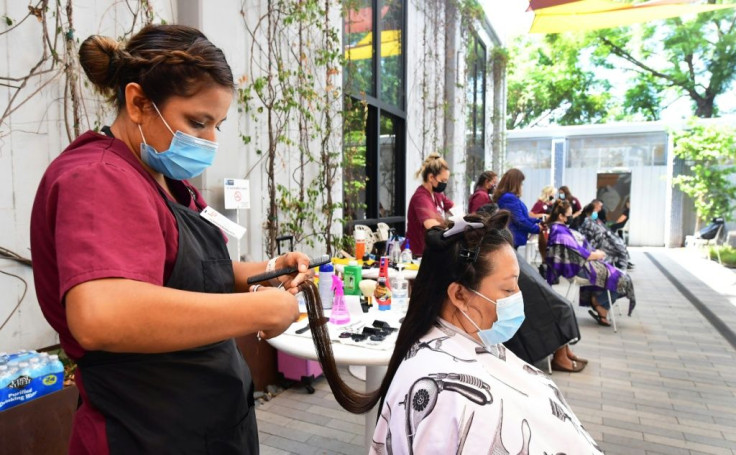Delta Wave Tossed Wrench Into US Job Market In September
The US economy was predicted to add hundreds of thousands of jobs last month but instead gained only 194,000 as the Delta variant of Covid-19 again denied President Joe Biden the soaring labor market he is banking on -- at least for now.
Schools shed jobs, and the bars and restaurants that have become a barometer of the virus' threat to business added barely any positions in the Labor Department's September employment report released Friday, which at best presented a mixed verdict on the state of the world's largest economy.
On a more positive note, the unemployment rate ticked down more than expected to 4.8 percent, and the last two months' jobs gains have been revised upwards, underlining that the United States has come a long way from the devastating weeks last year when Covid caused tens of millions to lose their jobs.
Biden has been banking on an economic revival to build support for his presidency-defining spending bills while also fending off the Republican opposition's attempts to use the country's debt limit to force a retreat on his ambitious agenda.
The data underscores how the virus's fast-spreading variant has complicated those plans, though cases have declined nationwide since the cutoff for the report's data, in the first half of September.
Biden called the drop in the unemployment rate "a significant improvement from when I took office, and a sign that our recovery is moving forward, even in the face of a Covid pandemic."
But the Republican National Committee was scathing, tweeting: "Joe Biden has failed Americans."
Economists view the data as likely enough for the Federal Reserve to begin slowing its massive purchases of bonds and securities meant to help the country through the pandemic, as they signaled they could do later this year.
"With debt ceiling shenanigans pushed back until December 3, the road is clear for an announcement at the November" meeting of the Fed's policy committee, Lydia Boussour of Oxford Economics said.

The monthly employment data have become progress reports for the United States' bounceback after more than 20 million jobs were lost to the pandemic, and the latest report showed the economy had regained 17.4 million positions since the downturn's nadir in September 2020.
However there were still five million positions missing, with job growth averaging 561,000 per month this year and fluctuating significantly.
In July, the economy added an upwardly revised total of nearly 1.1 million positions. But that was before Delta struck, slashing job down to 366,000 in August, according to revised data from Friday's report.
Industries that bore the brunt of the pandemic suffered in September, with food and drinking places adding barely any positions for the second straight month after averaging gains of 197,000 between January and July.
Overall leisure and hospitality sector employment rose 74,000 positions, professional and business services added 60,000 jobs, retail trade gained 56,000 and transportation and warehousing rose 47,000.
Schools appeared to shed workers and hold back overall jobs gains, with local government education employment falling 144,000 and state government education shedding 17,000 positions during the season when they typically add staff as the new school year begins, the data said.
There was also little movement in the labor force participation rate indicating the share of the population employed or actively looking for work. It stood at 61.6 percent last month, within the range it has hovered since June of last year.
The US labor market's racial inequalities continued in September, with the Hispanic unemployment rate declining to 6.3 percent and the rate for African Americans falling sharply to 7.9 percent, though both were above the 4.2 percent rate for white people.
In the education sector, the report warned that "recent employment changes are challenging to interpret" and said the pandemic had "distorted the normal seasonal hiring and layoff patterns."
Weak leisure and hospitality hiring likely slowed the employment gains overall, and Ian Shepherdson of Pantheon Macroeconomics predicted "October will be much better, given the continued decline in Delta cases and rising activity in the restaurant, airline and hotel sectors."
© Copyright AFP 2024. All rights reserved.











